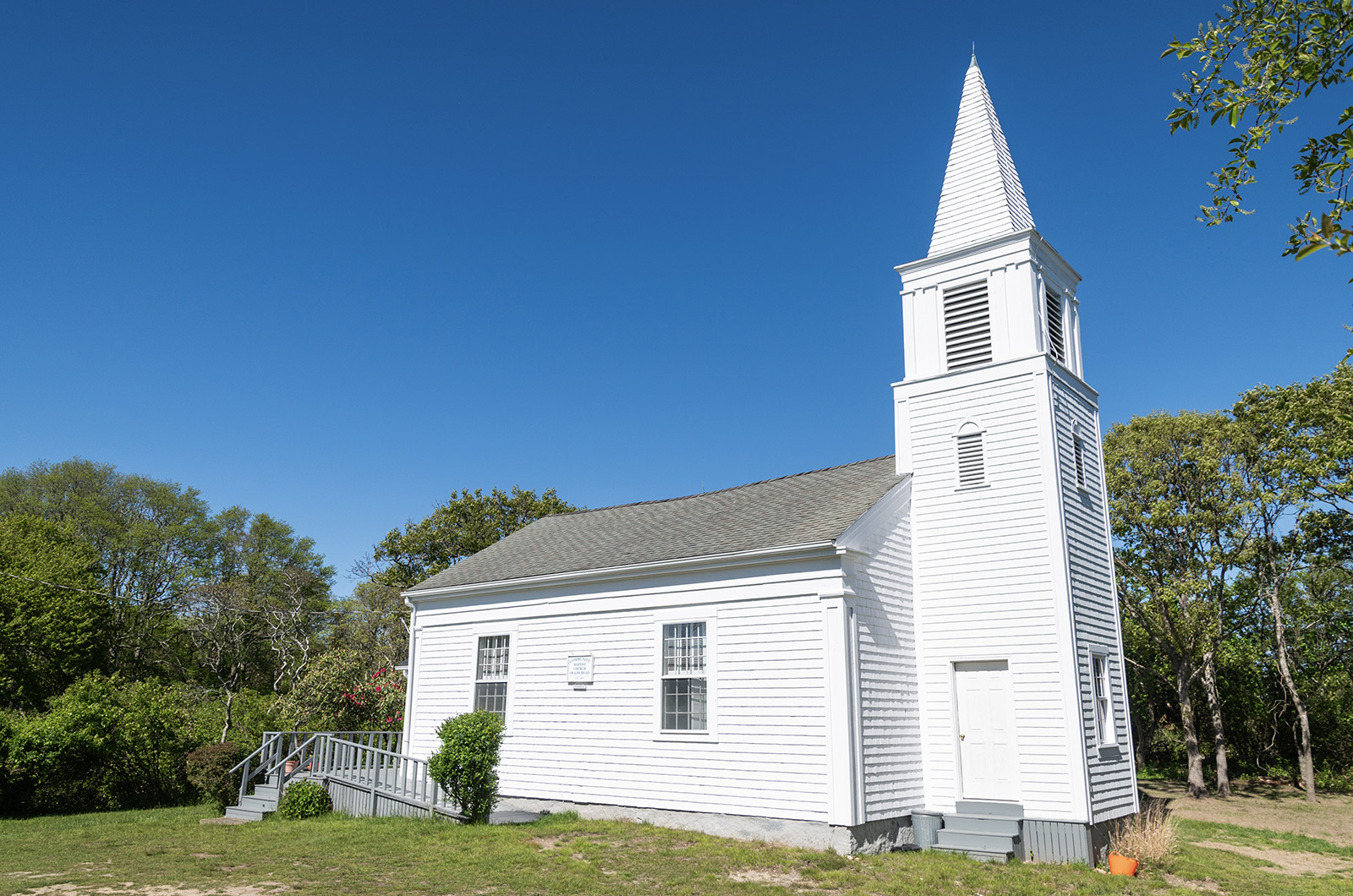For years, Islanders have prayed for more affordable housing. A new plan in Aquinnah turns to a house of worship for an answer.
The Community Baptist Church of Gay Head, the longest continually worshiping Native American congregation in the country, got approval from the town planning board last week to convert its 168-year-old parsonage into a duplex for community housing. The plan provides the Island’s smallest town with new units and gives the aging church a much-needed new revenue source.
While it’s a small number of rooms compared to what the Vineyard needs, Rev. Michael Gilman said the project is aimed at bolstering both the community and Aquinnah’s only church, which now only has about 10 members.
The rental apartments will be open to the public, with a preference for Aquinnah residents. It will not be limited to churchgoers.
“This will be the first step in reestablishing a footprint here,” Reverend Gilman said. “The church cannot afford to be insular. It can’t just be about the people that are there on Sundays. You have to be [working] with the community, and that’s what we are attempting to do.”
Older than the U.S. itself, the congregation was established in 1693 by Christian missionaries, and the church was used early on as a vehicle for Native American cultural assimilation. The parsonage was built in 1856, before being moved to Church street in 1907.
Despite its roots, the church holds a tender place in the heart of some Aquinnah residents and its historical documents played no small part in the Wampanoag Tribe of Gay Head (Aquinnah) gaining federal recognition in 1987.
“Even through all the changes, transitions, joyful leavings and sorrowful departures, the church has been the light of this small community,” tribal Chief Ryan Malonson wrote in an undated history of the church.
When reached this week, the chief said he’s been out of the loop on the parsonage’s progress, due to health issues and travels, but he stood behind the effort.
“I think it’s a good idea,” he said.
As a parsonage, the Greek Revival-style home historically hosted the pastor but has also been used to house community members in the past. About 10 years ago, the parsonage septic failed, leaving the church at a crossroads.
The congregation had hoped to do something with the building, but the costs were just too high, said Derrill Bazzy, a consultant with Island Housing Trust who has been helping the church with the project.
That obstacle was overcome recently when a church member, who Mr. Bazzy declined to name due to the person’s wish to avoid the limelight, pledged to cover the costs of the historic renovation. The total restoration of the building and conversion into a one-bedroom and a three-bedroom apartment duplex is estimated to cost $1 million.
The church will continue to own the building, and the rents will go to sustain the congregation and also help fix up the deteriorating house of worship.
“It’s going to look like the day it was born from the outside, but from the inside it will be modern and safe,” Mr. Bazzy said.
The income limit for residents will be capped at 120 per cent of the area median income. The affordable housing addition will continue Aquinnah’s title as the town with the highest percentage of affordable housing on the Island.
“Aquinnah is really a leader in terms of affordable housing but it doesn’t mean we’ve done enough,” Mr. Bazzy said. “To see the church taking on their role of supporting community is a great thing.”
The planning board approved the plan unanimously on May 21. A full foundation will be added under the building and it will be fully restored.
Reverend Gilman has a house in Aquinnah, but said at some point one of the units could go back to being an actual parsonage with a parson living in it.
Construction could start in late summer or early fall. Reverend Gilman said the rents will help repair the church’s bowing roof and shore up finances so the church could get loans to purchase new carpeting and lighting.
“It’s been a long time coming,” Reverend Gilman said. “It’s been stop and go for the last 10 years, but we’re finally moving forward on it and it feels good.”








Comments (5)
Comments
Comment policy »